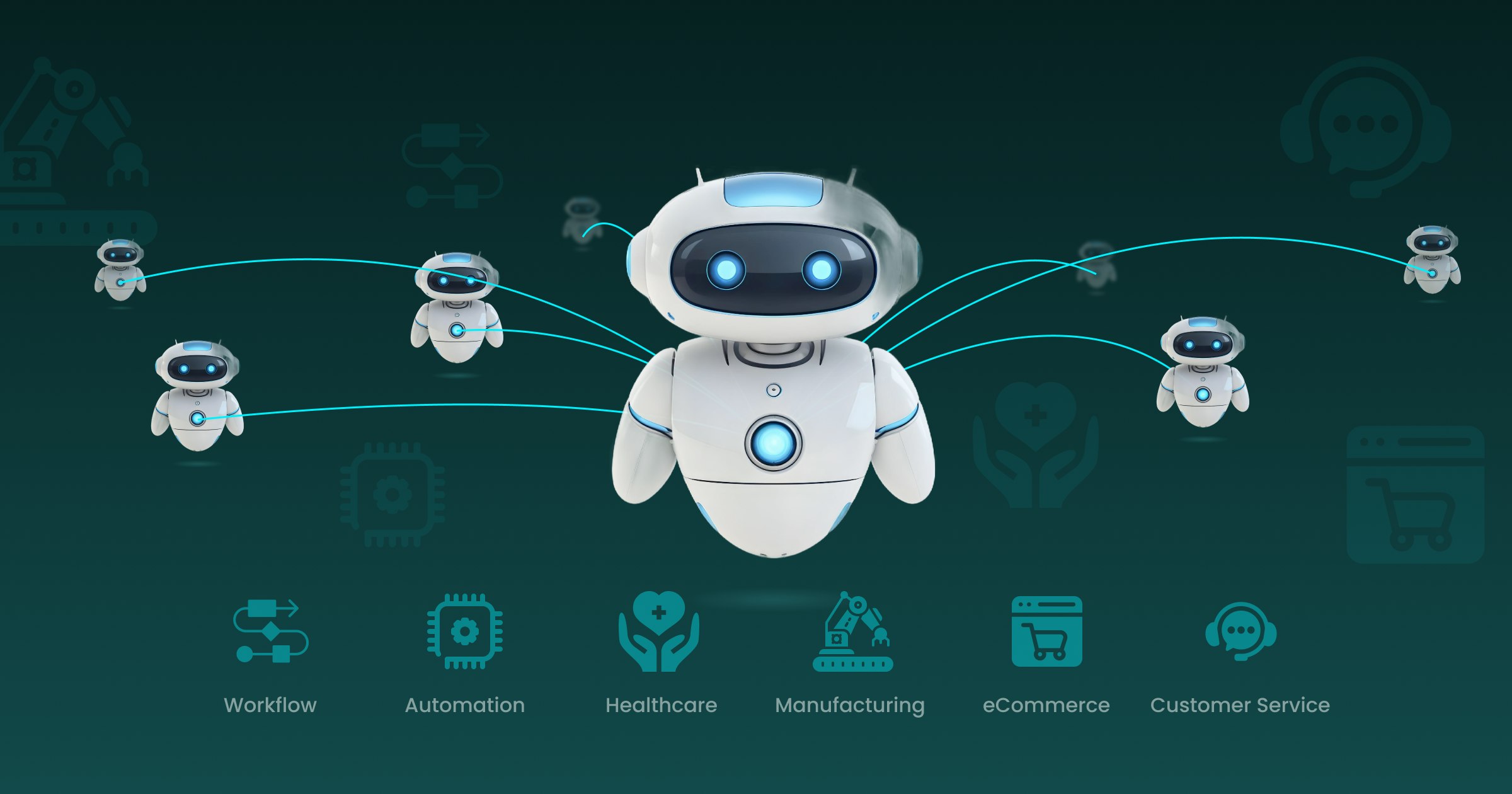Companies in today’s very competitive market have to change quickly to keep ahead. Scaling development calls for innovative, flexible solutions for evolving corporate environments, not only personnel but also conventional tools. Now enter Agentic Automation, a novel method combining modern artificial intelligence (AI) powers with human decision-making. This creative technology is changing how businesses reach scalability and efficiency by arming agents with agentic process automation tools.
This blog explores agentic artificial intelligence automation’s possibilities, its applicability in scaling company operations, and how decision-makers like you may use its might to propel sustainable development.
The Evolution of Automation: From Robotic to Agentic
Robotic Process Automation (RPA) has been the pillar of operational efficiency for years since it automates repetitive chores and lowers human error. While RPA concentrates on pre-defined processes, Agentic Automation has advanced this by including flexibility and decision-making power.
Agentic roles transcend strict scripts or repetitious activities, unlike those of conventional automation. These clever agents make judgments, actively evaluate their surroundings, and instantly change their behavior. This dynamic technique helps companies automate complex procedures that require contextual knowledge and reactivity.
For example, a customer support chatbot driven by agentic process automation can identify a disgruntled tone in a customer’s message and escalate the problem to a human representative, guaranteeing a flawless and sympathetic customer experience.
Why Agentic Automation is Inherently Scalable

Agentic automation is becoming increasingly popular, primarily due to its scalability. Scaling automation sometimes needs major manual configuration and monitoring in conventional systems. On the other hand, agentic artificial intelligence is scalable and adaptable with no intervention required.
These smart-systems can:
- Examine enormous volumes of data to spot trends and maximize processes.
- React to shifting corporate conditions, including supply chain interruptions or changing customer expectations.
- Perfectly interact with current technological stacks to reduce the need for resources in adoption.
This flexibility guarantees companies can grow their operations free from conventional resource limitations and inefficiencies.
Transformative Benefits of Agentic Automation for Business Growth
Using agentic process automation solutions provides many advantages for companies trying to expand. It affects critical corporate areas as follows:
1. Enhanced Operational Efficiency
Agentic automation lessens human team workload by automating complex, context-sensitive tasks. While the system manages daily, data-intensive operations, staff members can concentrate on strategic, high-value tasks. In finance, for instance, intelligent automation may generate reports, match accounts, and find anomalies—all in real-time.
2. Superior Customer Experiences
Consumers of today want responsive and customized experiences. By combining AI-driven insights with consumer data, agentic artificial intelligence automation helps companies provide just that. From tailored advice to proactive problem-solving, these solutions guarantee each client interaction has significance.
3. Improved Decision-Making
Agentic positions’ capacity to assess patterns, process data, and offer actionable insights helps leaders quickly make data-based decisions. Imagine a supply chain situation where an intelligent system suggests different providers and forecasts possible disruptions, reducing delays and risk.
4. Cost Optimization
Although the initial outlay in agentic process automation would seem significant, the long-term benefits are indisputable. Over time, these systems minimize downtime, lower errors, and maximize resource allocation, thus saving substantial costs.
Real-World Applications of Agentic Automation

Healthcare
Agentic automation is transforming administrative processes and patient treatment in healthcare. Through data and symptom analysis, intelligent agents can schedule visits, triage patient questions, and even help with medical diagnosis.
Retail
Through dynamic pricing approaches, retail companies use agentic artificial intelligence automation to control inventory, personalize marketing campaigns, and improve consumer experiences.
Financial Services
Banks and other financial institutions use agentic process automation solutions to increase customer onboarding procedures, simplify loan approvals, and help detect fraud.
Manufacturing
Manufacturers can forecast equipment breakdowns, maximize inventory levels, and preserve constant production quality by including agentic roles in supply chain management and manufacturing processes.
How to Choose the Right Agentic Automation Solution
Achieving desired results for business decision-makers depends on choosing appropriate agentic process automation solutions. These are some essential factors:
Scalability: Make sure the solution can handle growing complexity and volumes and develop to meet your company’s needs.
Integration Capabilities: The platform should effortlessly fit your current procedures and systems.
Customization: Look for tools that will fit your industry-specific needs for customizing.
User-Friendly Interface: Higher employee adoption rates will result from an intuitive and simple-to-use solution for user-friendliness.
Proven Track Record: Choose suppliers who have successfully implemented comparable technologies in past years.
Leading providers of complete solutions for agentic automation are UiPath, Automation Anywhere, and Novulis. Their systems are meant to provide strong performance, flexibility, and simplicity of use so that your company keeps ahead of the curve.
Overcoming Challenges in Implementing Agentic Automation

Although the advantages are significant, using agentic AI automation could be difficult. Companies’ obstacles include resistance to change, skill shortages, and starting expenses. Still, these can be lessened by:
- Clear communication of the benefits to stakeholders.
- Comprehensive training programs to upskill employees.
- Phased implementation to minimize disruptions.
By proactively handling these issues, companies can maximize agentic process automation and propel revolutionary expansion.
The Future of Agentic Automation
Agentic automation’s possibilities are almost endless as technology develops. From facilitating real-time cooperation between humans and machines to advancing artificial intelligence and machine learning, this approach is poised to rethink employment completely. Adopting agentic AI automation is not just a need but also a must for business decision-makers to stay competitive in a market that is quickly changing.
Businesses can reach hitherto unheard-of degrees of efficiency, creativity, and customer happiness using instruments that change, grow, and learn. It is now the time to embrace agentic roles and open the path for a future propelled by intelligent automation.
Conclusion
In today’s fast-paced environment, scaling corporate growth requires a paradigm transformation rather than only minor adjustments. Agentic automation is the engine for this change because of its intelligence, scalability, and adaptability.
Operations, digital transformation, and IT decision-makers start their path to sustainable development with knowledge and application of agentic process automation tools. This will help your company to establish itself as a leader in customer-centricity, efficiency, and inventiveness.
Business development’s future resides here. Are you ready to maximize agentic artificial intelligence automation?



GIPHY App Key not set. Please check settings